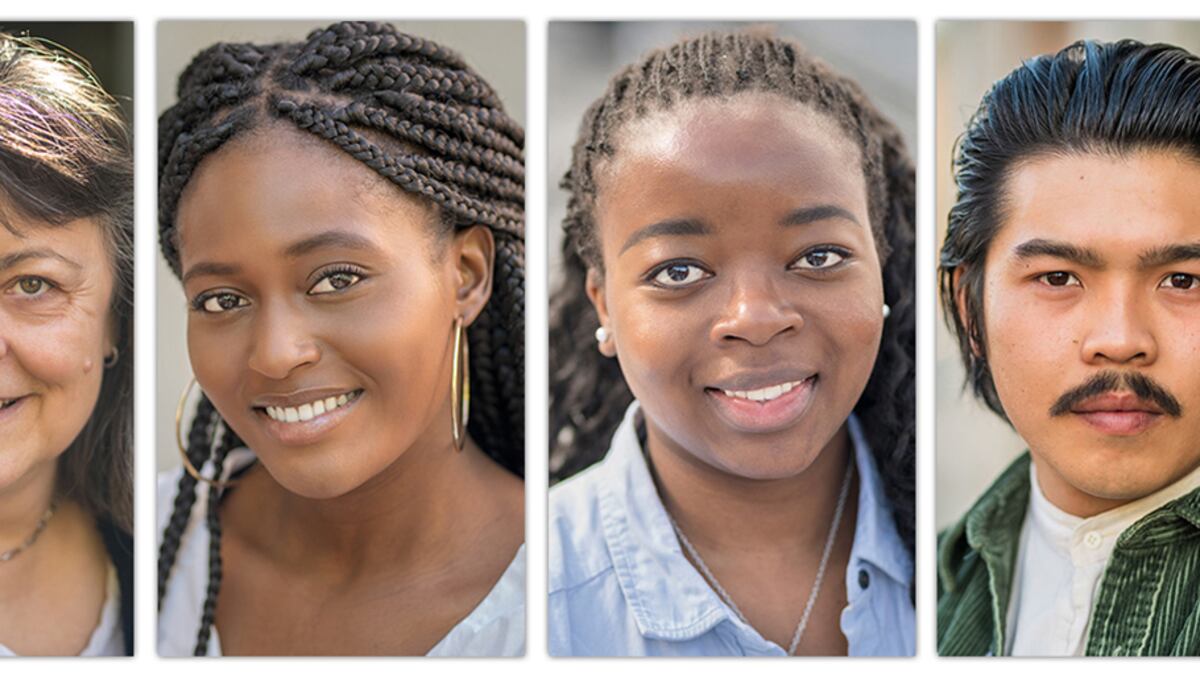We've been through a lot these past four years. Even though there now may be a glimmer of hope at the end of the political tunnel, the distance we've trudged has left many feeling exhausted.
That sense of fatigue is more intense among immigrants and people of color who've been subjected to overt discrimination and violence during the Trump era, which is why the new podcast, Many Roads to Here, feels so essential. The joint project between Portland-based nonprofit The Immigrant Story and the Portland Radio Project provides a channel for immigrants to recount their journeys to the U.S. in their own words.
In 2017, Immigrant Story founder Sankar Raman began collecting the narratives of people who decided to uproot their lives and move here in order to foster empathy and understanding. In October, he found a way to give those subjects a megaphone by launching the audio series.
"These stories needed to be shared, to showcase what our country is made of, who we are and what makes us great," Raman says.
Following the results of the presidential election, WW caught up with Raman to discuss how a new administration might affect the immigrants' rights movement, what motivated him to start the podcast, and why it's so important to create a space for immigrants to take the narrative surrounding them back into their own hands.
WW: What sparked the idea to launch The Immigrant Story in the first place?
Sankar Raman: It was about four years ago when I was kind of retiring. After finishing a bit of traveling, I came back to Portland right in the thick of an election that was really bad for immigrants—and especially immigrants of color. The election started with rhetoric that Mexicans, and humans of color in general, were rapists and murderers. It became the central theme—how immigrants were made into a scapegoat.
I started to hear about a lot of bad, violent things happening from our community, especially on Inauguration Day. I thought how we have to do something about this when our space is becoming full of violence, hate rhetoric and all those things geared towards certain segments of people. You could throw in so much statistics and data to try to counter the narrative, but I thought it would be great to just spread empathy by telling stories. It's really about humanizing these immigrants in our community by telling their own personal stories.
Has anyone expressed concern about sharing their story because it will shine a spotlight on them?
Yeah, absolutely. At the height of [the Deferred Action for Childhood Arrivals debate, U.S. Immigration and Customs Enforcement] was targeting families, they were targeting people. We'd say, 'Hey, do you want to remain anonymous? Do you want to talk about this? Do you feel comfortable?' Some people take comfort in telling their story because they want to be heard. Then, we'd ask them if they're going to be OK—what happens if ICE figures out [their identities] through names and photographs? There are cases where we have pulled down stories because they're afraid because their application processes are going through or they are seeking political asylum and they don't want to be in the public record. There are a lot of reasons like that, so we are very sensitive to this and really want to make sure their safety is taken care of.
Do you think the extra attention that's being given to immigrants' rights and other social movements will begin to wane because Trump won't be in office anymore?
I was thinking this, too. It's daunting, right? It's so daunting to think about it this way. Who is actually collecting the data on the number of things the outgoing administration did with respect to social justice, immigration and things like that, right? There are hundreds of things we were making progress on that were moved back. With social justice, we are making baby steps, we are making progress. That's a faith I have in the system.
I worry that regular citizens who have been more socially active this year may feel like they don't have to fight as hard anymore.
My personal observation, locally anyway, is that it's going to stay the way it is. I think that's an added benefit of coming out of a summer of protest. If it doesn't, somebody has to slap everybody and remind them, 'Hey, remember when we all came together, and how we have to keep it up?' Sometimes we need to just remind ourselves about the fact that it worked very well, and it'll continue to work very well.
LISTEN: Many Roads to Here broadcasts at 99.1 FM on the first Sunday of every month. 4 pm. Episodes are also available on demand at theimmigrantstory.org/manyroads.

